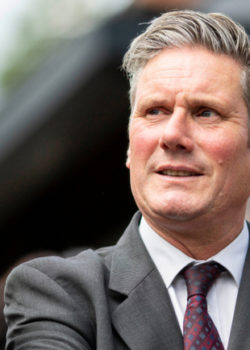Lauren Boyd, one of London’s most reputed executive coaches, sat in a chair in the empty boardroom of Fontex (a fictional company name), trying to make sense of what she just heard. She had just been told by Jeff, the CEO of the company that Mark—whom she had been coaching intensively for the past six months—would be nominated CFO and member of Fontex’s board.
Jeff, congratulating Lauren on her excellent work, also told her confidentially that he thought Mark’s development so promising, he was considering him for his succession once he retired in a year. Lauren should have felt satisfied, even proud; instead she was upset and confused about Mark’s appointment. Lauren knew that giving Mark the seat on the board was wrong, and that he would probably cause serious harm to Fontex as CEO.
Her thoughts drifted to her other coachee Gregory, Fontex’s COO and Mark’s competitor for the board position, who had now lost the seat to Mark. “How unfair”, Lauren thought. “Gregory has everything for the job that Mark hasn’t: vision, strategic thinking, operational experience and deep knowledge of the company.”
In fact, most people at Fontex appreciated Gregory, while Mark was often met with scepticism and distrust. Why, then, had he ended up being the chosen one, and—even worse—why was he being considered for CEO succession?
Personality disorder
Lauren knew of course why Mark was chosen over Gregory for the job. What Mark had, and Gregory lacked beside all of Mark’s qualities, was the seductive charm and charisma that attracted many people to Mark. It somehow made them blind to his dark side.
And he certainly had a dark side. Lauren knew, after having coached him for months, that Mark was utterly self-centred and solely focused on getting to the top. In his quest for power, he did not hesitate to aggressively and relentlessly pursue those who did not support him, and ruthlessly exploit those who did.
Lauren, a psychoanalytic psychotherapist, was even able put a name to his behaviour: Mark was suffering from narcissistic personality disorder (NPD). Lauren had seen many top executives with the same type of affliction. They often rose to power in times of crisis or change, and were excellent at creating an emotional bond with those who were looking for a strong leader and would easily follow anyone they considered a saviour.
What these followers failed to realise, however, was the manipulation underlying the narcissist’s actions. They played people against each other, creating factions between supporters and “enemies” (i.e. those not duped by their behaviour), and generated confusing, complex situations in which they came out as the ones who had all the answers.
But why were these men so often the ones who rose to the top? (A large-scale study involving more than 475,000 participants showed that most were male[1]).
The leadership illusion
Today’s literature on leadership focuses on a kind of “ideal” leader: a selfless, authentic, transparent, “servant-leader” who only speaks the truth and heroically drives his/her followers towards the greater goal. Reality looks quite different: a majority of the people who actually make it to the top are quite self-serving and Machiavellian, more focused on spending their time securing their position and income rather than putting the organisation’s interests before their own.
The reason for this is simple: those who brave the long, thorny path to the top are the ones driven by the strong inner need for, and relentless pursuit of, personal power. And while some of those who ultimately reach power positions do start out with the desire to benefit both self and others, once they are at the top, and power’s addictive quality kicks in, their major goal is to secure their position at any cost.
This is how once-exemplary leaders later end up falling from their pedestal. Looking at the characteristics of leaders, we find a disproportionately large number with NDP among them. NDP is a disorder of the personality described first in 1971 by psychoanalyst Heinz Kohut[2], and documented today by the Diagnostic and Statistical Manual of Mental Disorders[3], the “bible” of the psychiatric profession as a pathology.
Narcissism: the bright and the dark side
Narcissism originates very early in life and exists on a spectrum. We all have and need a certain degree of narcissism: without it, we would have no sense of self-worth and no drive to achieve. When parents encourage children and praise—but not overpraise—their achievements, they instil in them the necessary degree of narcissism, creating a “can-do” approach to life. Narcissism is our motor to achievement, giving us the belief that our actions will lead to success.
However, highly narcissistic people, whose parents either failed to instil in them a healthy sense of self-esteem, or overdid it by praising when praise was not due, embark on a lifelong search for confirmation of how great and special they are. Their major quest in life becomes the desire to be admired and idealised by others, and to acquire power over others to make up for their own deeply ingrained feelings of powerlessness and lack of self-worth.
As a result, they crave power and attention, and exhibit an exaggerated sense of self-importance and entitlement, expecting to be recognised as superior even without achievements that warrant it. They exaggerate their achievements and talents, and are preoccupied with fantasies about success, power, brilliance, beauty or the perfect mate. They consider themselves brilliant and powerful, chosen to have a special status or a destiny to fulfil.
Narcissists become especially dangerous when their calculating nature is combined with charisma. They are excellent at reading the emotional undercurrent of their environment and use their understanding to further their own agenda. Verbally agile and smooth-talking, they act as magnets for their psychological counterparts, those whose deepest need is to idealise and admire others.
As with NPD, the need for idealisation starts in childhood when children try to cope with feelings of weakness and inadequacy by admiring other, stronger and more powerful people. These individuals are ready to engage in hero-worship, unrealistically overestimating the other’s desirable qualities and underestimating his/her limitations.
They are the narcissist’s perfect prey, and narcissists have sharp antennae for finding and luring them into their trap. The emotional bond created between them can become so strong that the narcissist’s followers will be willing to do almost anything to please them—sometimes even overstepping the limits of law and decency.
And since narcissists perceive themselves as genuinely superior to others whom they see as insignificant and disposable, they feel justified when they manipulate and exploit these “lesser” people in order to reach their goals.
The narcissist on the board
Having a narcissist on the board is a no-win situation, especially when the narcissist happens to be the CEO of the company. Because narcissists are fundamentally insecure, they have a need for complete and total control of others, and will go out of their way to maintain it through a highly autocratic decision-making style.
Their fundamental belief of “if you are not with me, you are against me” is likely to create a split between board members who support them and those who recognise them for the manipulators they are.
If the chairman and other board members fall for their charm and manipulations and relinquish power to them, we are likely to see a board in manic overdrive, making risky, high-stakes decisions at an impressive speed, rarely taking into account the human, economic, political or environmental costs of these decisions.
If, however, the chairman and other board members resist the narcissist’s attempts to take complete power, the board will spend most of the time engaged in an overt or covert power game with the narcissist, robbing him of the time and energy to actually run the company.
Don’t wrestle with a pig
What can the board do, once they recognise the narcissist in their midst? The answer depends on how important the narcissist is to the company, and whether the board is prepared to stand up to him, or prefers to keep the status quo—at least in the short term.
As the saying goes, “Don’t wrestle with a pig. The pig likes it and you get dirty”. One can’t win a fight with a narcissist, so clashing with him head-on is only an option if the board clearly decides to move the CEO out of his position.
However, in many instances, moving the narcissistic CEO out immediately is not an option. In that case the only way to deal with him is to apparently let him have his way until he can be replaced. Making him look good and feel good about himself will work, as it will play to his endless need for admiration.
And when actions need to be taken, the board will need to do some “psychological judo”, making him believe that the initiative came from him in the first place.
But this is a short-term solution. It is very difficult to change a narcissist. If anything, many of them become even more extreme and destructive with time and power. The good news is that in time they tend to self-destruct—hopefully before they can do serious harm to the company.
Narcissists or brilliant businessmen?
STEVE JOBS
Steve Jobs is often cited as a high-profile boardroom narcissist. Psychology Today blogger Gregg Henriques wrote in 2012: “He was preoccupied with his sense of importance and his brilliance, he consistently damaged others by exploiting and bullying them and could be completely unempathetic to their feelings, he was envious of others’ attention, he was arrogant and haughty, and he was controlling and manipulative.”
BILL GATES
Bill Gates, a contemporary of Steve Jobs, does not escape description as a narcissist. A Forbes article once claimed that Gates had this characteristic in common with Osama bin Laden and Henry Ford. Indeed, Gates is frequently cited as a narcissist. Michael Maccoby, the leadership expert, wrote in the Harvard Business Review: “A few narcissistic leaders such as Bill Gates may find a friend or consultant—for instance, Warren Buffet, a superproductive obsessive—whom they can trust to be their guide and confidant. But most narcissists prefer ‘mentors’ they can control.”
ANDY GROVE
Another frequently cited narcissist is Andy Grove, the businessman viewed as a pioneer in the semiconductor industry. Grove was idolised by Steve Jobs, who reportedly turned to Grove for advice. In the same Harvard Business Review article, Maccoby wrote of Grove: “These leaders see everything as a threat. As Andy Grove puts it, brilliantly articulating the narcissist’s fear, distrust, and aggression, ‘Only the paranoid survive’. The concern, of course, is that the narcissist finds enemies that aren’t there—even among his colleagues.”
References
1. www.buffalo.edu/news/releases/2015/03/009.html
2. Kohut, H., “The Analysis of the Self”, New York: International Universities Press, 1971
3. “Diagnostic and Statistical Manual of Mental Disorders: Fifth Edition”, American Psychiatric Association, 2013
Dr Katharina Balazs is associate professor at the Department of Management, ESCP Europe, France.





